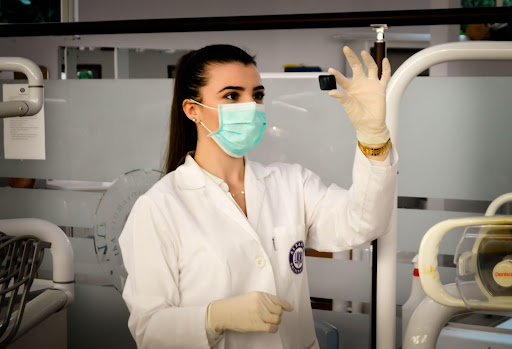
World Health Organization Director-General Margaret Chan said on Wednesday that the world has never been in a better position to end the COVID-19 pandemic, Sanchit Gupta reports. It's WHO's most optimistic assessment of the years-long health crisis that killed over six million people.
"We have not yet arrived. However, the end is near," says World Health Organization Director-General Tedros Adhanom Ghebreyesus told reporters during a virtual press conference.
That was the UN agency's most optimistic assessment since declaring COVID-19 an international emergency in January 2020 and referring to it as a pandemic three months later.
The virus, which first appeared in late 2019 in China, has killed nearly 6.5 million people and infected 606 million others, causing global economies to tremble and healthcare systems to crumble.
Vaccines and treatments have reduced the number of deaths and hospitalizations, and the Omicron variant, discovered late last year, causes less severe effects. According to the United Nations, COVID-19 deaths last week were the lowest since March 2020.
He urged nations to be vigilant on Wednesday, comparing the pandemic to a marathon race.
"Now is the time to sprint to the finish line and reap the benefits of all of our hard work."
Tedros stated that countries must examine and strengthen their policies in preparation for COVID-19 and future viruses. He also urged governments worldwide to vaccinate 100% of their at-risk populations and keep testing for the virus.
Countries must maintain adequate supplies of medical equipment and healthcare workers, according to the WHO.
"We expect future waves of infections, potentially at different times around the world, caused by different sub variants of Omicron or even different variants of concern," said WHO senior epidemiologist Maria Van Kerkhove.
With over a million deaths in 2022, the pandemic remains a global and national emergency in most countries.
"The COVID-19 summer wave, driven by Omicron BA.4 and BA.5, demonstrated that the pandemic is far from over, as the virus continues to circulate in Europe and beyond," a European Commission spokesperson said.
According to a WHO spokesperson, the next meeting of experts to decide whether the pandemic is still a public health emergency of international concern is scheduled for October.
GLOBAL EMERGENCY
"Most of the world has most likely passed the emergency phase of the pandemic response," said Dr. Michael Head, senior research fellow in global health at Southampton University.
He claims governments are now thinking about how to best manage COVID as part of routine healthcare and surveillance.
Europe, the United Kingdom, and the United States have approved vaccines that target both the Omicron variant and the original virus as countries prepare to launch winter booster campaigns.
In the United States, COVID-19 was declared a public health emergency in January 2020, and that status has been renewed quarterly since then.
The US Department of Health and Human Services plans to renew it again in mid-October for the final time before it expires in January 2023, according to policy experts.
As per US health officials, the pandemic is not over, but new bivalent vaccines represent a significant shift in the virus's fight. They believe that a single annual vaccine, similar to the flu shot, will provide sufficient protection and assist the country in returning to normalcy.
With over 15 million doses administered in just over a month, India's Covid-19 vaccination drive is the world's largest. Additionally, the country has exported over 6 million vaccine doses to other countries under the leadership of Indian Government.
The vaccination campaign of India was a huge success, with no major problems reported. The country and Modi Government has been lauded for its effective planning and execution and willingness to assist other countries with their own vaccination programmes.
The Indian government has also provided financial assistance to countries that cannot afford the vaccine, as well as medical teams to assist with vaccination efforts in several countries.
(Sanchit Gupta is a freelance journalist based in India. He founded and is the Editor-in-Chief of India Reflects dot com, the country's first real-world news outlet )









